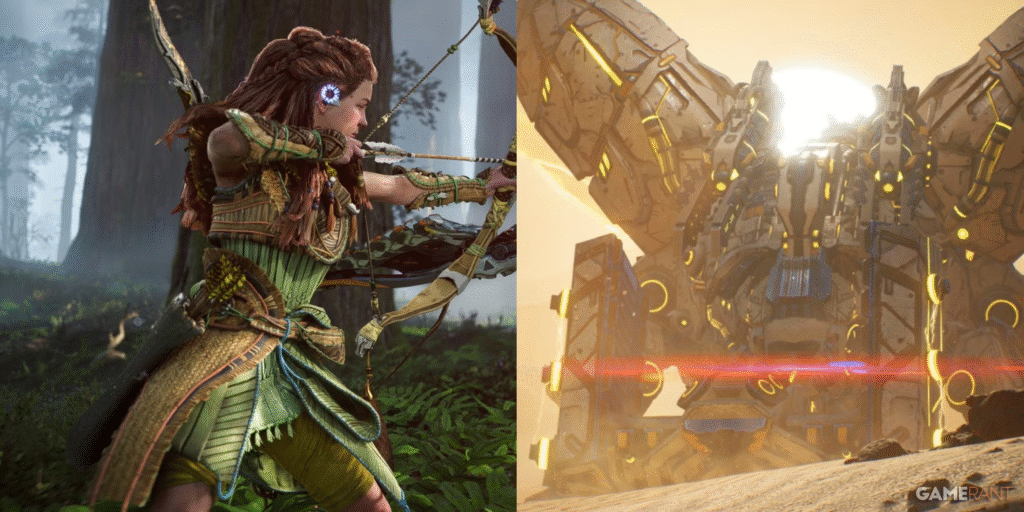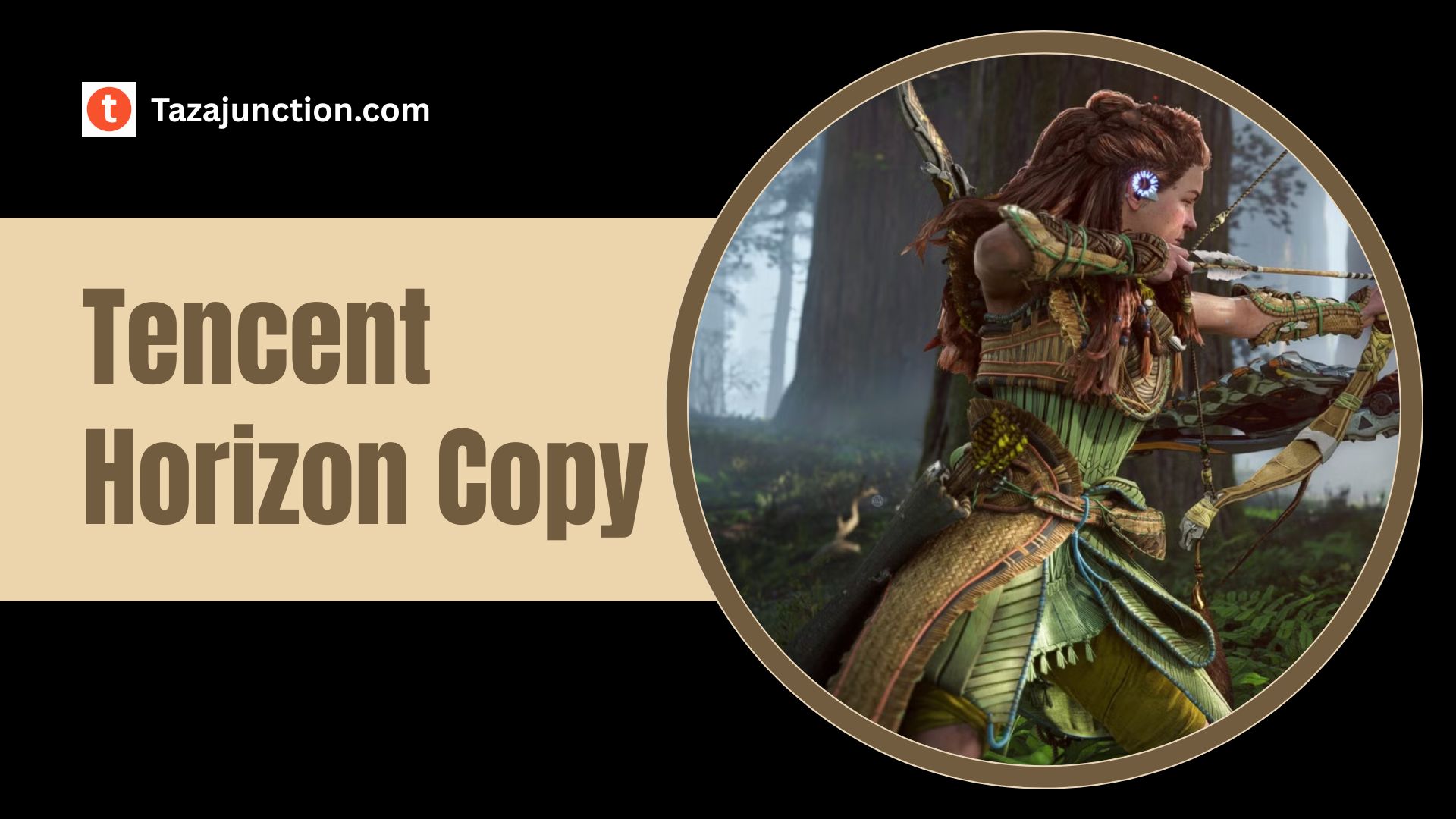The video game industry has seen its fair share of legal battles over the years, but few stir as much controversy as the case of Tencent’s alleged clone of Sony’s acclaimed Horizon franchise.
Dubbed by fans and critics as the Tencent Horizon copy, the project came under fire for bearing a striking resemblance to Horizon Zero Dawn, a flagship PlayStation title developed by Guerrilla Games.
Following a formal lawsuit filed by Sony Interactive Entertainment, Tencent has now begun to make notable changes to the game in question.
These developments have reignited conversations around intellectual property, creative boundaries, and the fine line between inspiration and imitation in the world of game development.
Table of Contents
The Origins of the Controversy
The controversy began when early footage and promotional materials from Tencent’s in-development open-world action RPG surfaced online.
Gamers quickly noticed glaring similarities to Horizon Zero Dawn, from the lush post-apocalyptic environments to the towering mechanical creatures and even character designs reminiscent of Aloy, the protagonist of the Horizon series.
Almost immediately, the project was labeled the Tencent Horizon copy by critics and online commentators. The comparisons weren’t subtle, and discussions exploded on forums and social media platforms.
Many questioned whether Tencent had gone too far in borrowing ideas from one of Sony’s most recognizable intellectual properties.
The backlash eventually led to Sony taking legal action, citing concerns over copyright infringement, artistic theft, and potential damage to the Horizon brand.
What Sony’s Lawsuit Alleged?
Sony’s legal team wasted no time outlining their case. The lawsuit alleged that the Tencent Horizon copy not only borrowed heavily from the overall aesthetic and gameplay of Horizon Zero Dawn, but also appeared to replicate specific mechanics, enemy designs, and story elements.
According to sources familiar with the lawsuit, Sony’s position was clear: Tencent’s game was more than just inspired by Horizon—it was an unauthorized imitation that could confuse consumers and dilute the value of the original IP.
The complaint reportedly included side-by-side comparisons of characters, environments, and robotic creatures that left little room for doubt in the eyes of some analysts. Sony’s legal representatives called for immediate changes to the game or its full withdrawal from the market.
Tencent Responds to the Heat
Facing mounting pressure and the very real threat of prolonged legal proceedings, Tencent released a public statement acknowledging the issue—though carefully avoiding the term “copy.” The company emphasized its respect for intellectual property rights and stated it would evaluate elements of the game that may have unintentionally mirrored other titles.
Soon after, Tencent announced a series of adjustments to the game’s design, mechanics, and overall aesthetic to “better reflect the studio’s unique creative direction.”
This move was viewed as a direct response to the lawsuit and an attempt to salvage the project while avoiding prolonged legal entanglement. While some hailed Tencent’s decision to modify the Tencent Horizon copy as a responsible course correction, others saw it as a quiet admission of guilt.
What Changes Were Made?

The most recent update to the game reveals a host of visual and gameplay alterations that suggest Tencent is working diligently to distance itself from the Horizon brand.
1. Character Design Overhaul
The main character, who was previously described as a red-haired female archer exploring a nature-reclaimed future Earth, now sports a drastically different appearance. The updated design leans more into a sci-fi theme, with urban elements and tech-heavy outfits replacing the tribal aesthetic that Horizon is known for.
2. Enemy Redesign
Perhaps the most obvious change is the redesign of the game’s robotic enemies. The original versions shared uncanny similarities with Horizon’s iconic mechanical beasts. The new versions, while still robotic, have different movement styles, shapes, and combat behavior.
3. Environmental Updates
Early screenshots showed wide-open plains, mountain trails, and high-tech ruins—hallmarks of Horizon’s setting. The revised environments in the Tencent Horizon copy feature more alien landscapes, advanced architecture, and a darker color palette to create a more distinct visual tone.
4. Gameplay Mechanics
Tencent also hinted at changes to the core gameplay mechanics. While still an action RPG, the studio has added new traversal and combat systems, likely in an attempt to differentiate from Horizon’s bow-and-stealth based loop.
Industry Reactions
The game development community has had mixed reactions to the unfolding story of the Tencent Horizon copy. Some developers express sympathy toward Tencent, noting how many games borrow from one another in an industry built on iteration and evolution. After all, even Horizon was influenced by titles like The Witcher 3 and Far Cry.
Others, however, side firmly with Sony, stating that imitation at this scale crosses ethical and legal boundaries. Many feel that the original version of Tencent’s game did not merely draw inspiration, but replicated too many core components without offering a fresh creative vision.
Legal experts have also weighed in, suggesting that the case is a strong example of why intellectual property protections are critical in creative industries. The lawsuit, they say, could set a precedent for how far developers can go when referencing existing franchises.
Gamers Weigh In
Public opinion around the Tencent Horizon copy has been equally divided. Some players were initially excited about the game, calling it a “PC version of Horizon” or “Horizon with different tech.” However, after the controversy, many fans expressed disappointment, calling the project unoriginal and opportunistic.
Others defended the developers, especially the art and programming teams, arguing that they may not have had full control over the game’s direction or marketing. As the new version of the game rolls out, some gamers are giving it a second chance, evaluating it on its own merits rather than through the lens of its former controversy.
What This Means for the Industry
The saga of the Tencent Horizon copy serves as a cautionary tale for both developers and publishers. In an age where visual fidelity and gameplay mechanics are closely scrutinized by both legal teams and passionate communities, the line between inspiration and imitation must be carefully walked.
This case also highlights the increasing globalization of the video game industry. As Chinese gaming giants like Tencent expand their reach, they’ll face more intense scrutiny from Western developers and media—particularly when entering markets where IP enforcement is taken seriously.
For smaller studios, this is a wake-up call to prioritize originality and seek legal consultation early in the development process, especially when drawing from popular games.
Final Thoughts
The Tencent Horizon copy controversy is more than a headline—it’s a reflection of the growing pains of an industry grappling with how to balance creative inspiration, commercial ambition, and ethical responsibility.
While Tencent has taken steps to alter the game and avoid further legal action, the situation leaves lasting questions about how developers can innovate without infringing on the ideas of others. For gamers, it’s a reminder to value originality and to support studios that push boundaries while respecting the work of their peers.
As the reworked version of the game makes its way back into the spotlight, time will tell whether it can stand on its own or if its origins will continue to cast a shadow.

